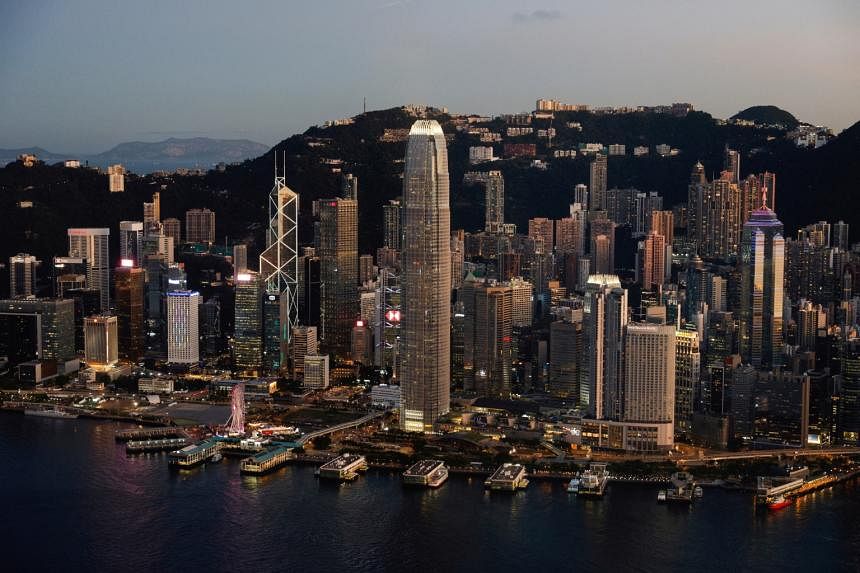HONG KONG - Russian companies shut out of Western financial capitals are exploring Hong Kong as an alternative, stoking concern among US officials that the Asian hub will become a haven for businesses sanctioned over the war in Ukraine.
A number of major, including state-owned, Russian companies are seeking to engage with Hong Kong law firms to help anchor them in a "friendlier jurisdiction" than places such as New York and London, said Mr Sherman Yan, a managing partner at Hong Kong's ONC Lawyers.
At least two other law firms in the Chinese territory have also been approached by Russian companies, some of which inquired about raising capital in the city, according to three people familiar with the matter, who asked not to be named because the discussions are confidential.
"Interest from Russian companies to move certain activities to Hong Kong is certainly developing," said Mr Yan, whose firm has had initial discussions with Russian clients.
Some are looking to change certain registrations to Hong Kong, while keeping the business operations in Russia, he said.
Hong Kong could offer a window to outside capital for Russian firms since China's government has maintained friendly relations with Moscow and imposed no sanctions as the eight-month invasion escalates.
While Russian yachts are being seized across Europe, a US$500 million (S$700 million) superyacht linked to sanctioned billionaire Alexey Mordashov, the largest shareholder in steelmaker Severstal PJSC and Russia's third-richest man, last week anchored in Hong Kong waters.
But Hong Kong leader John Lee said on Tuesday that any United Nations sanctions would be upheld in the city, when asked about the yacht.
Questions also remain on whether banks and auditors in the city will be willing to deal with Russian firms given the threat of secondary sanctions.
Even mainland Chinese banks in the city, for example, have been reluctant in doing business with local officials who were sanctioned by the US over their role in the crackdown on freedoms after pro-Democracy protests in 2019.
The US State Department over the weekend expressed its concern over Hong Kong being used as place to avoid sanctions.
"Hong Kong's reputation as a financial centre depends on adherence to international laws and standards," a State Department spokesman said.
"The possible use of Hong Kong as a safe haven by individuals evading sanctions from multiple jurisdictions further calls into question the transparency of the business environment."
More broadly, the spokesman added: "Similarly, US companies increasingly view Hong Kong's business environment with wariness given the PRC's repressive actions undermining Hong Kong's high degree of autonomy and protected freedoms for people in Hong Kong."
There’s no obligation created for banks under Hong Kong Law regarding the unilateral sanctions imposed by foreign governments and it’s up to banks to assess such risks and treat customers fairly, a spokesman at the Hong Kong Monetary Authority (HKMA) said in an email.
The city’s banks had overall exposure of just HK$800 million (S$147 million) to Russia as of the end of June, down from HK$2.6 billion at the end of February, according to the HKMA.
For now, the transactions Russian firms are seeking to facilitate in Hong Kong are relatively simple. Examples include making Hong Kong the contractual jurisdiction for a loan deal between Russian and Indian entities, the people familiar said.
Some Russian companies interested in tapping Hong Kong are large in size, and some are state-owned, Mr Yan said. He declined to give specific names. Retail firms in supermarket operations and payment services are among those that have sent out feelers, one person familiar said.
ONC Lawyers is mindful of the sanctions and anti-money laundering risks posed, and is declining to work with affected people and companies, Mr Yan said.
The city is unlikely to see a a major rush given the reluctance of lawyers, bankers, and auditors with US or British backgrounds to work on Russian deals, he said.
The companies must also sort out a way to transfer capital to the Asian financial hub, but law firms and banks are declining to take roubles as payment, Mr Yan said.
Rich Russians and firms have also turned to other jurisdictions to avoid sanctions. In Dubai, for example, traders of Russian commodities have rushed to set up businesses.
Russian companies and the government have also pushed to replace the use of the dollar with the Chinese yuan. BLOOMBERG

